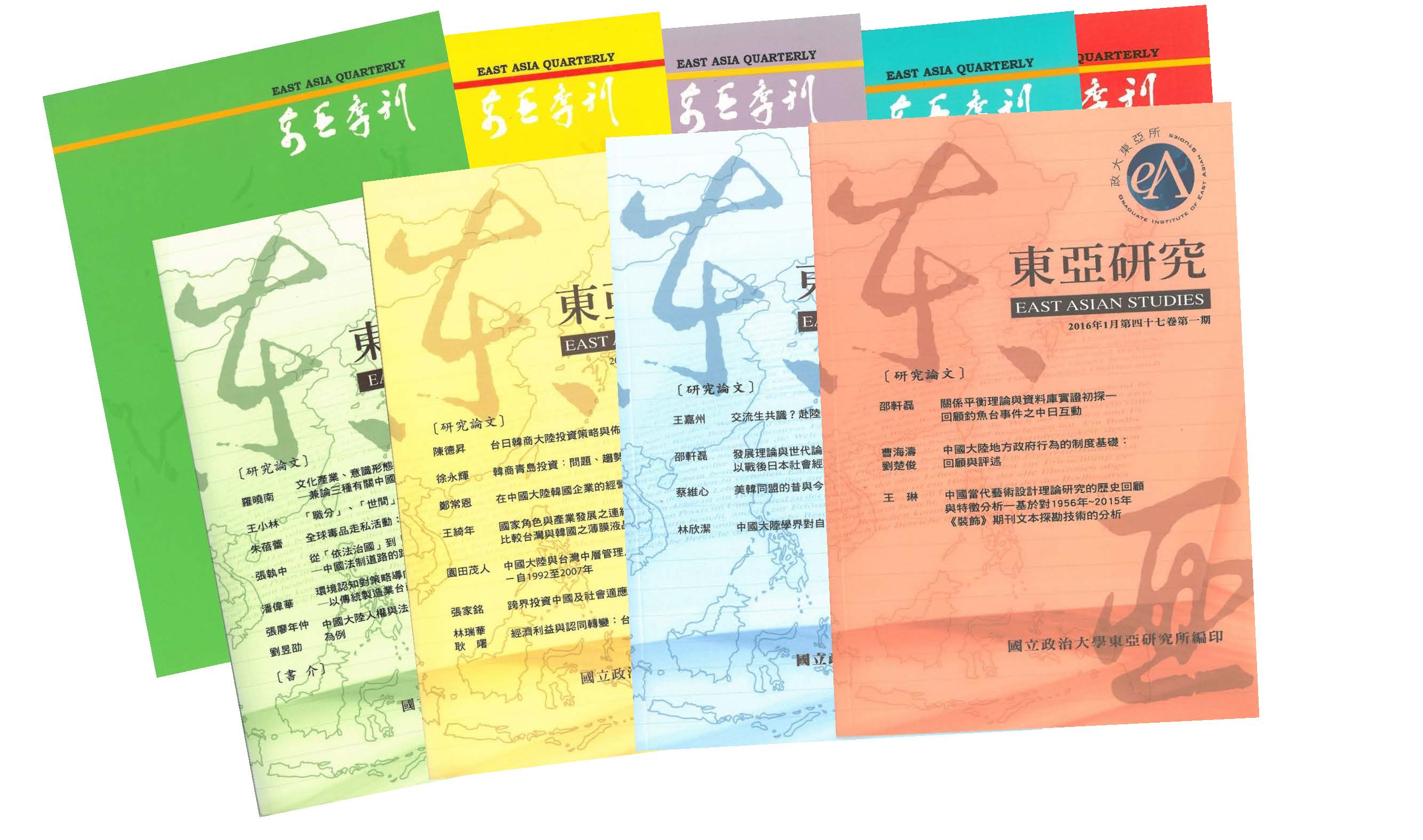East Asian Studies
East Asian Studies
In light of the importance of academic publications to the academic and research atmosphere on campus, our department has been dedicated to the publication of the "East Asia Quarterly" since its inception in 1969, through the collaborative efforts of faculty and students. The "East Asia Quarterly" is published once a year, with four issues released in spring, summer, autumn, and winter.
Starting in 2004 (Volume 35), the journal was transformed into a biannual publication and renamed "East Asian Studies." "East Asian Studies" upholds the academic traditions of the "East Asia Quarterly" and aims to facilitate interdisciplinary research on mainland China and neighboring countries, promoting exchange and dialogue within the academic community. The review and editorial processes of "East Asian Studies" are aligned with the operational procedures of journals indexed in the Taiwan Social Sciences Citation Index (TSSCI) database as established by the Ministry of Science and Technology.
In 2014, the journal received recognition from the Ministry of Science and Technology in the "Humanities and Social Sciences Journal Evaluation." Compared to the annually formatted TSSCI journal list, this evaluation emphasizes substantial content review. The evaluation occurs every three years and includes a quality assessment for political science journals every six years. Key quality indicators include whether articles are internally reviewed, the anonymity of the review process, the rejection rate, and the ratio of unreviewed to reviewed submissions. Our journal has successfully passed these evaluations and received commendation. Journals published from 2014 to 2016 were also rated as Tier 3 journals.
Our journal has consistently adhered to the highest academic standards in its operations, emphasizing academic ethics. The submission and review processes strictly follow established standard operating procedures, resulting in a high-quality academic journal. The recognition from the Ministry of Science and Technology's "Humanities and Social Sciences Journal Evaluation" reflects the journal's substantial quality, compliance with academic standards, and the publication of significant scholarly articles. The editorial team and all staff members are committed to maintaining this achievement and will continue to work diligently to improve further.
The editorial team of "East Asian Studies"







